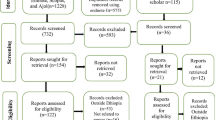Abstract
Objectives
The objective of this study was to evaluate factors associated with turnover intention among nurses in small and medium-sized medical institutions.
Methods
A self-administered questionaire survey was performed in 293 registered nurses, licensed practical nurses, and assistant nurses working full-time in various medical institutions. Multiple linear regression analysis was conducted, with turnover intention as the dependent variable, and nurses’ basic attributes and job satisfaction as independent variables.
Results
As for nurses’ basic attributes, turnover intention was significantly associated with registered nurses, younger nurses and those with low satisfaction with sleep. As for nurses’ job satisfaction, the number of nurses with turnover intention was significantly higher for those with low satisfaction with salary, low satisfaction with welfare, poor implementation of fair salary raise and poor cooperation among nurses.
Conclusion
Turnover intention may be reduced by the enhancement of trust in the organization, giving appropriate advice to young nurses and registered nurses, and developing measures for addressing sleep disorders.
Similar content being viewed by others
References
Yin JCT, Yang KPA. Nursing turnover in Taiwan: a meta-analysis of related factors. Int J Nurs Stud. 2001;39:573–581.
Cavanagh S, Coffin D. Staff turnover among hospital nurse. J Adv Nurs. 1992;17:1369–1376.
Fang Y. Turnover propensity and its causes among Singapore nurse: an empirical study. International Journal of Human Resource Management. 2001;12:859–871.
Alexander JA, Lichtenstein R, Oh HJ, Ullman E. Causal model of voluntary turnover among nursing personal in longterm psychiatric settings. Res Nurs Health. 1998;21:415–427.
Lu K-Y, Lin P-L, Wu C-M, Hsieh Y-L, Ychang Y-Y. The relationships among turnover intentions, professional commitment, and job satisfaction of hospital nurses. J Prof Nurs. 2002;18:214–219.
Takada K, Kusakari J, Kawaguchi T. A study of job satisfaction of nurses in S university hospital. Nihonkango-kenkyugakkaizasshi. 1995;18:53–61 (Article in Japanese)
Fukazawa K, Kusakari J. Evaluation of nurses’ job satisfaction—present status in Shinsyu University Hospital— Japanese Journal of Nursing Administration. 1992;2:378–383 (Article in Japanese)
Sekiya T, Takehana K, Nakazawa M, Kamiyama J, Miyashita M. Job satisfaction in nurses at our hospital. Medical Journal of Nagano Red Cross Hospital. 1996;10:45–49. (Article in Japanese)
Ozaki H, Tadamasa T. A study on the measurement of nurses’ job satisfaction in Japan. Osakahuritukangotandaikiyou. 1988;10:17–24. (Article in Japanese)
Simazu N. The structure of international-marketing of medical institution—using an investigation of nurses—Byouinkanri. 1994;31:239–247. (Article in Japanese)
Matsushita Y, Shibata K. Factors in early retirement of nurses newly graduated from college: motives of the selection of occupation and related factors half a year after employment. Yamanashikenritukangodaigakukiyou. 2004;6:65–72. (Article in Japanese)
Chu CI, Hsu HM, Price JL, Lee JY. Job satisfaction of hospital nurses: an empirical test of a causal model in Taiwan. Int Nurs Rev. 2003;50:176–182.
Blegen M. 1993. Nurses’ job satisfaction: a meta-analysis of related variables. Nurs Res. 1993;42:36–41.
Ozaki F. Study on nurses’ job satisfaction—comparison between nurses working in ICU/CCU and those working at general wards of internal medicine and surgery in the U.S.—. Japanese Journal of Nursing Research. 1987;20:54–67. (Article in Japanese)
Stamps PL, Piedmont EB, Slavtt DB, Hasse AM. Measurement of work satisfaction among health professions. Med Care. 1978;16:338–341.
Matsuno K. Study on determinant factors affecting burn out in nurses. Shouwaigakkaishi. 1987;47:383–391. (Article in Japanese)
Shimizu T, Eto R, Horiguchi I, Obata Y, Feng Q, Nagata S. Relationship between turnover and health check-up data among Japanese hospital nurse: A three-year follow-up study. J Occup Health. 2005;47:327–333.
Herzberg F, Mausner B, Snyderman B. The Motivation to Work. New York: Wiley: 1958.
Japanese Nursing Association. The survey and analysis of the resignation of hospital nurses and the ways to encourage nurses to stay in the profession. Japanese Nursing Association Research Report 44, 1994.
Author information
Authors and Affiliations
Corresponding author
Rights and permissions
About this article
Cite this article
Kudo, Y., Satoh, T., Sinji, H. et al. Factors associated with turnover interntion among nurses in small and medium-sized medical institutions. Environ. Health Prev. Med. 11, 128–135 (2006). https://doi.org/10.1265/ehpm.11.128
Received:
Accepted:
Issue Date:
DOI: https://doi.org/10.1265/ehpm.11.128




